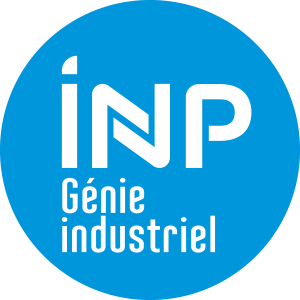Number of hours
- Lectures 24.0
- Projects -
- Tutorials 24.0
- Internship -
- Laboratory works -
- Written tests -
ECTS
ECTS 6.0
Goal(s)
The aim of this course is to provide students with a solid training on environmental policies in the industrial and energy sectors. It will present the different existing instruments, their appropriation by companies, the economic, political and social effects of their implementation. With this knowledge, students will be able to participate in the definition of their company's environmental strategy, by identifying the opportunities for business development or investment associated with these environmental policies. Students will also be introduced to the critique of instruments, their ideological background, the limits of their effectiveness, their distributive effects. These skills are essential to participate in the process of defining the instruments (as regulators, activists, lobbyists...).
The course will be accompanied by group work on a public policy instrument and its appropriation by companies. Each major part of the course will result in a corresponding deliverable. A final document will include the different deliverables, improved by the comments of the teachers and professionals involved.
Content(s)
A) How the environment enters politics
The perception of environmental risks: the role of events, expertise, institutions
History of ecological activism: from the anti-nuclear movement to the government party, notion of framing and social movement, diversity of ecological concerns and consequences in terms of political mobilisation.
Dynamics of opinions concerning climate change and its anthropic origins
Analysis of environmental controversies (e.g. European biofuel policy)
B) Instruments of public action
B.1. Regulatory policies and "traditional" budgetary instruments
Inspection of classified installations and risk management
Negotiated policies for the management of common resources: water policy, waste policy,
Extended producer responsibility and waste management
B.2. Climate Mitigation Policies
The economics of climate policy: the costs of climate change (effects of climate change, ecological discount rate)
International agreements (history of negotiations, Kyoto Protocol versus Paris Agreement, dealing with developing countries)
Explicit carbon price versus notional price
Climate policy instruments: CDM, international market, EU ETS (4 phases), climate contribution, carbon taxation, policies in China and the United States, mapping of different instruments in the world...
Effectiveness of climate policies (controversies around the demonstration of the additionality for the CDM, "low hanging fruits", effect of the EU-ETS)
Tax/permit/standard comparison (double dividend, innovation, uncertainty)
Acceptability of climate policies (business and social): profit neutrality and redistributive effects
Climate policy and trade (competitiveness losses and carbon leakage, border tax adjustments, climate club, new generation free trade agreements)
B.3. Energy transition policy
The liberalisation of the energy sector, the regulation of competition.
Support mechanisms for renewable energies, their justification and criticism, the control of State Aid
Political decentralisation and citizen mobilisation: energy community movement, individual and collective self-consumption
Energy efficiency policy : Load shedding, DSM and white certificates
C)Environmental strategy and management
C.1. Volontary action and regulation
Self-regulation
Voluntary agreements
Carbon accounting and internal carbon price (notional and explicit, AES and BP experiences) and carbon offsetting
Role of lobbying (example EU-ETS)
C.2 Business strategy in relation to stakeholders
Environmental certifications: green consumerism, guarantees of origin, green labels, (economic analysis of labels)
Innovation strategy (Dupont de Nemour and CFCs)
Environmental management, ISO 14001 certification, environmental communication
Partnership between firms and NGOs around the “Great Challenges”
Basics Economics
Group work will be carried out in relation with industrialists, environmental agencies, administration.
Evaluation: Students will be evaluated on the basis of projects (60%) and a final exam (40%).
Evaluation of project (group evaluation, moderated with individual participation) : N1
Final exam : N2
The exam is given in english only 
The course exists in the following branches:
- Curriculum - Engineer IPID apprentice program - Semester 9 (this course is given in english only
 )
) - Curriculum - Master 2 GI SIE program major SPD - Semester 9 (this course is given in english only
 )
) - Curriculum - Master 2 GI GID major GOD - Semester 9 (this course is given in english only
 )
) - Curriculum - Engineer student Master PD - Semester 9 (this course is given in english only
 )
) - Curriculum - Master 2 GI SIE program major SPD - Semester 9 (this course is given in english only
 )
) - Curriculum - Master 2 GI GID major GOD - Semester 9 (this course is given in english only
 )
) - Curriculum - Master 2 GI GID major DPD - Semester 9 (this course is given in english only
 )
) - Curriculum - Master 2 GI GID major DPD - Semester 9 (this course is given in english only
 )
) - Curriculum - Engineer student Master SCM - Semester 9 (this course is given in english only
 )
) - Curriculum - Master 2 GI SIE program major SOM - Semester 9 (this course is given in english only
 )
) - Curriculum - Master 2 GI SIE program major SOM - Semester 9 (this course is given in english only
 )
)
Course ID : 5GUC4502
Course language(s): 
You can find this course among all other courses.



